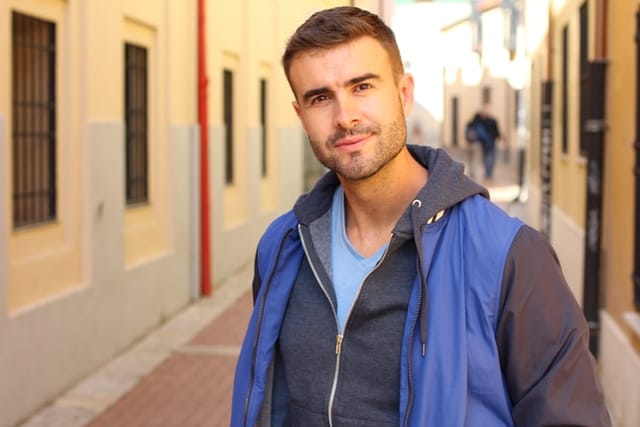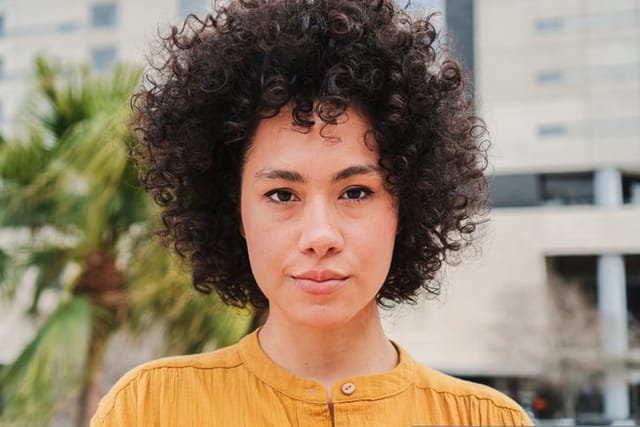Deep thinkers are individuals who possess a unique perspective on life. They often engage in introspection, contemplation, and observation, leading to profound insights and personal growth. While they may share some of their thoughts and ideas, there are certain things that deep thinkers tend to do but rarely discuss openly. In this article, we’ll explore five of these intriguing behaviors that shed light on the inner world of deep thinkers.
1. They always seek solitude for reflection.

Deep thinkers value their alone time immensely. They use these moments of solitude for deep introspection, pondering life’s mysteries, and seeking answers to complex questions. However, they seldom talk about the extent to which they delve into their thoughts during these quiet moments. These solitary reflections are a source of strength and clarity for deep thinkers.
2. They regularly contemplate existential questions.

Deep thinkers are known for their fascination with existential questions such as the meaning of life, the nature of consciousness, and the universe’s mysteries. They frequently ponder these profound subjects, often reaching conclusions or insights that they hold close to their hearts. While they might engage in philosophical discussions, they rarely reveal the depth of their contemplations.
3. They think about the universe.

Deep thinkers are naturally curious about the universe and humanity’s place within it. They contemplate cosmic questions related to space, exploration, and the possibility of extraterrestrial life. These reflections inspire wonder and curiosity about the vastness of the cosmos. While they may not always share these contemplations in everyday conversation, their cosmic musings contribute to their sense of awe and curiosity about the world beyond our planet.
4. Deep thinkers experience intense emotions.

Deep thinkers often experience emotions with great intensity. They are sensitive to the world around them and have a profound emotional awareness. However, they rarely discuss the depth of their feelings or how deeply certain experiences affect them. This emotional depth fuels their creative and intellectual pursuits.
5. They keep a mental catalogue of their observations.

Deep thinkers are keen observers of the world. They notice details that others may overlook and keep a mental catalog of their observations. This habit helps them connect dots and gain insights into various aspects of life. They rarely talk about the meticulous record-keeping happening in their minds, which contributes to their unique perspectives.
6. They readily examine the uncomfortable and unresolved.

Deep thinkers have a tendency to explore uncomfortable and unresolved aspects of their lives. They confront their fears, anxieties, and unresolved issues head-on, seeking personal growth and self-discovery. However, they seldom discuss the depth of their inner battles and the courage it takes to confront their inner demons.
7. They grapple with moral dilemmas.

Deep thinkers frequently grapple with complex moral dilemmas and ethical questions. They weigh the consequences of their actions and decisions, seeking to make choices aligned with their values and principles. However, they seldom share the depth of their moral reflections with others, as these dilemmas often delve into their personal beliefs and convictions.
8. Deep thinkers connect with nature on a deep level.

Deep thinkers often have a profound connection with nature. They find solace, inspiration, and a sense of awe in the natural world. Whether it’s a serene forest, a starry night sky, or the rhythmic crash of ocean waves, these encounters with nature deeply move them. Yet, they rarely express the depth of these connections in words, as they understand that some experiences are best felt rather than explained.
9. They embrace vulnerability in their relationships.

Deep thinkers love opening up to the people they care about, allowing themselves to be emotionally open and authentic. They recognize the importance of meaningful connections, even though they may not openly discuss their willingness to be vulnerable. These emotional bonds with others enrich their lives in profound ways.
10. They devote time to creative pursuits.

Deep thinkers often have creative outlets that provide them with a sense of fulfillment and self-expression. Whether it’s writing, painting, music, or another form of art, they devote time to these creative pursuits. However, they may not frequently discuss the depth of their creative processes or the profound emotions that fuel their artistry.
11. They find meaning in everyday moments.

Deep thinkers find meaning in the seemingly ordinary moments of life. They see beauty and significance in everyday occurrences, from a simple conversation to a walk in the park. While they may occasionally share these insights, they rarely express the full extent of their ability to find profound meaning in the mundane.
12. They question the status quo.

Deep thinkers have a natural inclination to question the status quo. They often challenge societal norms, traditions, and established beliefs. Their curiosity drives them to explore alternative perspectives and seek a deeper understanding of the world. However, they may not always vocalize their questioning nature, as it can lead to thought-provoking but uncomfortable conversations.
13. They experience profound empathy.

Deep thinkers possess a heightened sense of empathy. They can deeply understand and resonate with the emotions and experiences of others. While they may offer support and compassion, they rarely discuss the depth of their empathetic connections, as they prefer to provide comfort through actions rather than words.
14. Deep thinkers pursue all different interests.

Deep thinkers often have a wide range of interests that span various domains, from science and philosophy to art and literature. They immerse themselves in these diverse pursuits, gaining a multidimensional perspective on life. However, they may not frequently disclose the breadth of their interests, allowing them to maintain a sense of mystery.
15. They consider their own mortality regularly.

Deep thinkers frequently contemplate the concepts of mortality and transience. They reflect on the impermanence of life and the finite nature of existence. While these reflections can lead to a profound appreciation for the present moment, they are often kept private, as discussions about mortality can be deeply personal and philosophical.
16. They’re always trying to achieve personal growth.

Deep thinkers have an unwavering commitment to personal growth and self-improvement. They actively seek opportunities for self-reflection and growth, often setting high standards for themselves. However, they may not openly share the extent of their dedication to self-development, as they view it as an intrinsic journey.
17. They gravitate towards intellectual challenges.

Deep thinkers have a natural affinity for intellectual challenges. They enjoy tackling complex problems, engaging in philosophical debates, and exploring intricate ideas. However, they may not always express the extent of their enthusiasm for such challenges, as they value the process of intellectual exploration more than the recognition.
18. They contemplate the concept of time.
Deep thinkers often contemplate the abstract concept of time and its impact on human existence. They ponder questions about the past, present, and future, exploring how time shapes our perceptions and decisions. While these reflections influence their worldview, they may keep them private due to their abstract nature.
19. They find beauty in silence.
Deep thinkers have an appreciation for moments of silence and solitude. They find beauty in the absence of noise and distractions, allowing them to connect with their inner selves and the world around them. However, they may not frequently discuss their preference for silence, as it is a deeply personal experience.
20. They reflect on personal growth journeys.
Deep thinkers often reflect on their personal growth journeys, acknowledging the challenges they’ve faced and the lessons they’ve learned along the way. While they may share some insights, they rarely divulge the full extent of their personal transformations, as they view growth as an ongoing process.
21. Deep thinkers embrace paradoxes and ambiguity.
Deep thinkers are comfortable with paradoxes and ambiguity. They recognize that life is filled with contradictions and gray areas, and they embrace the complexity of these situations. However, they may not openly discuss their comfort with ambiguity, as it challenges conventional notions of certainty.
22. They delve into profound questions.
Deep thinkers have a natural inclination to explore profound questions about life and existence. They often engage in introspection and philosophical contemplation, seeking to understand the deeper meaning behind human experiences and the universe itself. Their curiosity leads them to question conventional wisdom and consider alternative perspectives, contributing to their unique worldview.
23. They foster authentic relationships.
Deep thinkers prioritize the quality of their relationships over quantity. They value authenticity and seek connections with individuals who share their values, passions, and interests. These meaningful bonds provide them with a sense of fulfillment and emotional support. While they may not always discuss their relational preferences openly, they invest time and effort in nurturing and sustaining these authentic connections.
24. Deep thinkers understand complex emotions.
Deep thinkers possess a deep understanding of human emotions. They acknowledge that emotions are not always simple and can be influenced by various factors. Their ability to navigate the complexities of emotions enables them to connect empathetically with others and offer support when needed. While they may not vocalize the intricacies of emotions frequently, their emotional intelligence is a fundamental part of their interpersonal interactions.
25. They embrace cultural diversity.
Deep thinkers appreciate the richness of cultural diversity. They actively explore and draw inspiration from various cultures, including their art, literature, traditions, and values. This exploration broadens their perspectives, fosters tolerance, and enhances their ability to relate to people from different backgrounds. While they may not discuss their cross-cultural interests extensively, their openness to diverse influences enriches their lives.
Enjoy this piece? Give it a like and follow Bolde on MSN for more!











